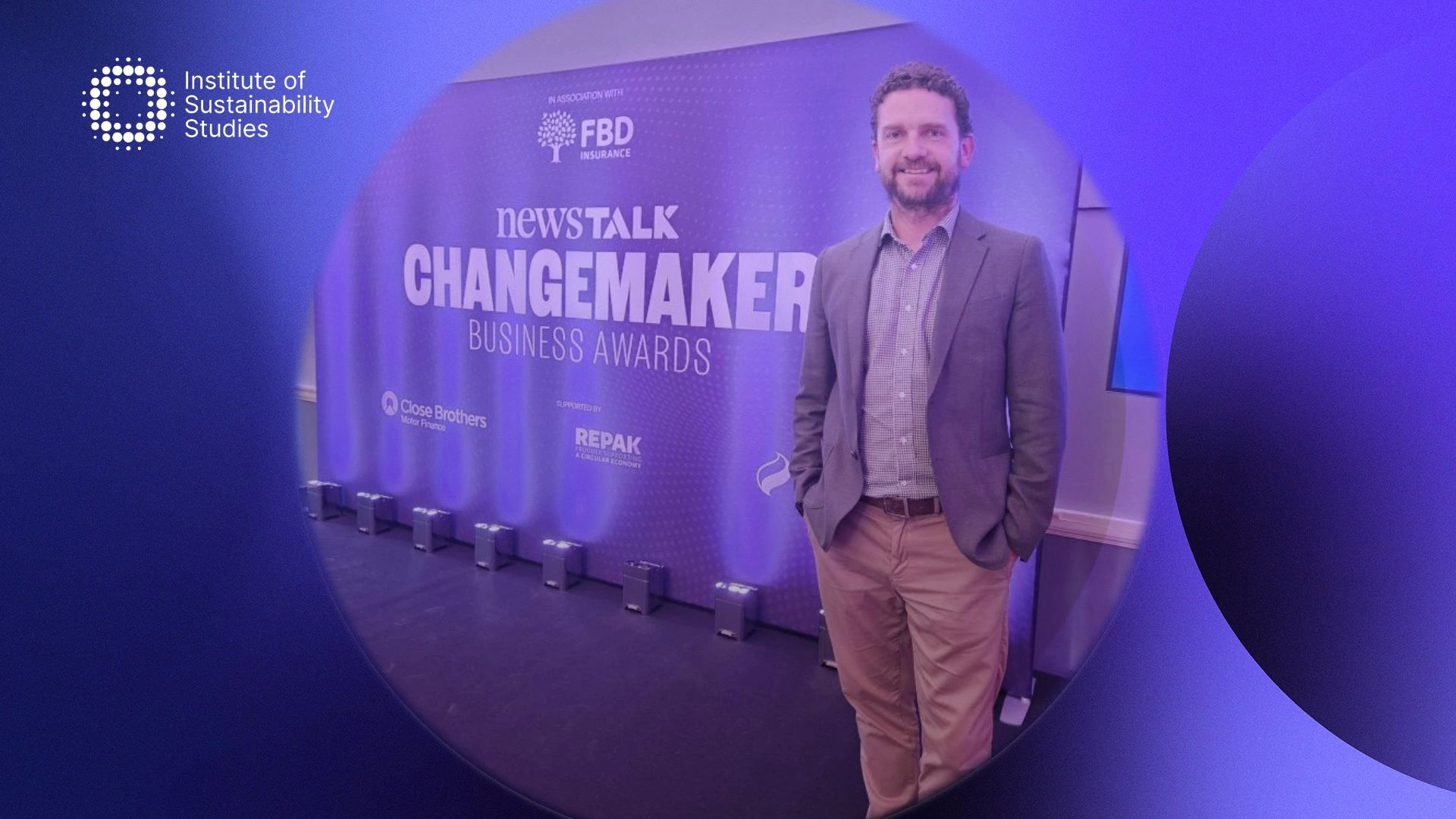The sustainable job market is booming as more companies prioritise addressing the climate crisis. In 2023, there has never been a better time to pursue a career in environmental sustainability. From roles like sustainability officer, head of sustainability, sustainability manager, climate change manager, and more.
The growing company budgets, increase in investor focus, and ambitious climate commitments have meant there are more green jobs than ever before. According to the World Economic Forum, the number of green jobs has grown globally at a rate of 8 percent per year over the past five years.
The only problem is trying to fill the sustainability talent gap jobs with talent. Most sustainability jobs require technical skills, creative problem-solving, and an ability to collaborate. Continue reading to find out how we can address filling the sustainability talent gap by looking within.
The rise of sustainable jobs
In order to tackle climate change, the corporate world has to take action, and it will take more than hiring some chief sustainability officers. Every job will soon be a sustainable job because we are all facing these environmental issues. It makes perfect sense because to fight this; we need an army of employees in all areas of business.
This means supply managers, product designers, scientists, architects, and more will need the knowledge to find ways to improve sustainability for the health of the planet and the company they are working for. Employers are on the hunt for these exact skills to become more sustainable.
According to a 2022 green economy report, in the US, jobs in the renewable energy and environment sectors rose by 237 percent over the past five years. However, green jobs are popping up in more industries than energy. Sustainable fashion is one of the quickest-growing eco-friendly jobs sectors. On average, it has had a 90 per cent growth rate yearly from 2016 and 2020.
Additionally, there has been a rapid expansion of ESG (environment, social, and governance) investing, and portfolio management is opening up new roles in sustainable finance. The accounting firm, PwC announced in 2021 that it would be investing $12 billion and creating 100,000 new positions in ESG investing by 2026.
Most of the quickest-growing sustainable jobs between 2016 and 2021 need both technical and creative problem-solving skills. There is also a big demand for urban sustainability officers who can assist in transforming cities to net-zero carbon. Interestingly, the number of businesses that have chief sustainability officers in executive positions has tripled from 9 percent to 28 percent between 2016 and 2021.
The challenge in finding sustainable talent
It’s very difficult to ignore the impacts of climate change, and the gravity of the issue has resulted in over 3,900 businesses announcing climate pledges. It’s apparent the pending business changes will be significant. In other words, they will affect various operations and processes.
This will require essential effort to equip businesses and employees with a wide range of new skills required for sustainable transformation and climate adaptation. The sustainability skilling challenge has always been difficult. However, the creation of a net zero planet is needed and will spread into each and every sector of the economy.
Sustainable transformation requires people who can combine skills and specialised sustainability knowledge with varying degrees of other skill sets. They must be able to match the knowledge of STEM with other fields and acquire skills that span digital technology, data, and business. This combination is difficult to find currently and usually does not exist.
The sustainability talent gap is creating a lot of anxiety for business leaders as a result and not only reflects the enormity of climate change but some other elements too. There are public expectations from businesses to progress on their climate pledges. Another thing to note is the added pressure on performance which is expanding while economic concerns also grow.
Why we need to fill the sustainability talent gap?
According to a BCG report titled ‘Put Talent at the Top of the Sustainability Agenda’, core teams assisting businesses to embark on sustainability transformations require people with a mix of four broad skill sets. These skills include transformational, data and digital, functional, and sustainability. Roughly 84 percent of the sustainability progressions surveyed shared priority skills for being successful in their position in at least two of the four areas.
There is limited talent with this broad skill profile, and due to this, businesses are developing the talent they need instead. They are doing this by choosing employees with the necessary transformational, data and digital, and functional expertise. From this point, they help them quickly gain the specific expertise required to place their talents to work toward sustainability. The talent who step into the rising sustainability-focused positions faces a steep learning curve.
This is the biggest upskilling challenge sustainability professionals face. While businesses rely on external learning providers to upskill their staff, it is challenging to find certification programs and formalised courses focused on the sustainability skills required to assist with this transformational change. In order to achieve sustainability goals, skilling has to go further than just the core team it begins with.
Every single member of an organisation must have a good understanding of sustainability and be able to merge this expertise with their existing skills. The final stage of an organisation’s sustainability transformation sees all talent with sustainability capabilities in place in each part of the business. Sustainability will slowly become business as usual. The need for skilled talent remains as crucial as ever. Businesses really need to consider how they will enable, support, and retain their future sustainability-capable workforce.
How to help employees access impact roles?
As mentioned, sustainability jobs require a specific skill set which means some training is needed. Those filling these roles must be creative problem solvers and have technical skills. Some of these skills can be learnt. However, increasing the amount of qualified job applicants will need more accessible and effective training opportunities that meet employers’ needs.
Luckily there are lots of options to help talent acquire these skills so they can access these impact roles. Cross-border partnerships are key to developing rising talent and giving these individuals the skills they require to both drive and achieve ESG ambitions. In addition to educating new talent, we also need to look within. As well as the pipeline of potential sustainability and ESG drivers coming through business schools and universities, there is also a wealth of untapped talent currently working in businesses.
While they need certain skills to take on the challenge, they likely already have some of the necessary criteria. For instance, the ability to communicate, coach, mentor, take risks, innovate, and adapt. Waiting for qualified sustainability leaders to come along could result in you missing the boat. Despite the rise in sustainability roles, it is still a new field. However, the best practices for retaining sustainability talent are quite similar in other areas.
Progressive and open-minded sustainability leaders should look within to encourage teams to collaborate between departments to share best practices and acquire new skills. They also should offer educational opportunities. It’s all about making people feel valued and creating a culture that encourages them to want to have a positive impact on society and thrive.
The most successful environmental champions out there are those that support ideas, encourage others to get involved, communicate action, and provide training. They are not always individuals who have a background in sustainability. We need to create sustainability solution doers; it is not always about acquiring new talent. Oftentimes, it is about considering how your current team will shape the path to success and giving them the opportunity to do exactly that.
Closing the sustainability talent gap
Over the last ten years, the world has realised the need to take action to fight the climate crisis. Momentum to do so is gathering at a quick pace. Transitioning to a more equitable and circular economy is also underway.
Businesses of all shapes and sizes are also becoming increasingly mindful and conscious of how their operations affect the Earth. As a result, they want to attract talent who can aid their transition to more green ways of operating. Education, government, and industry need to work together to address the sustainability skills gap too.
There is no one size fits all solution, but a collaborative approach will help us progress responsibly toward sustainability. Educational programmes, prioritising diversity, and looking within and empowering your team will enable long-term economic growth. We all need to work together to close this skills gap.
Summary
The number of green jobs has risen significantly over the last decade as businesses increasingly take climate action. While the number of green jobs is a positive sign that brands worldwide are addressing sustainability, it also reveals a sustainability talent gap. While not every employee is well educated on sustainability and its importance, these skills can be learnt. They often still have the other skills required to be great environmental champions. Businesses need to look within and train their teams to close the green skills gap effectively.










